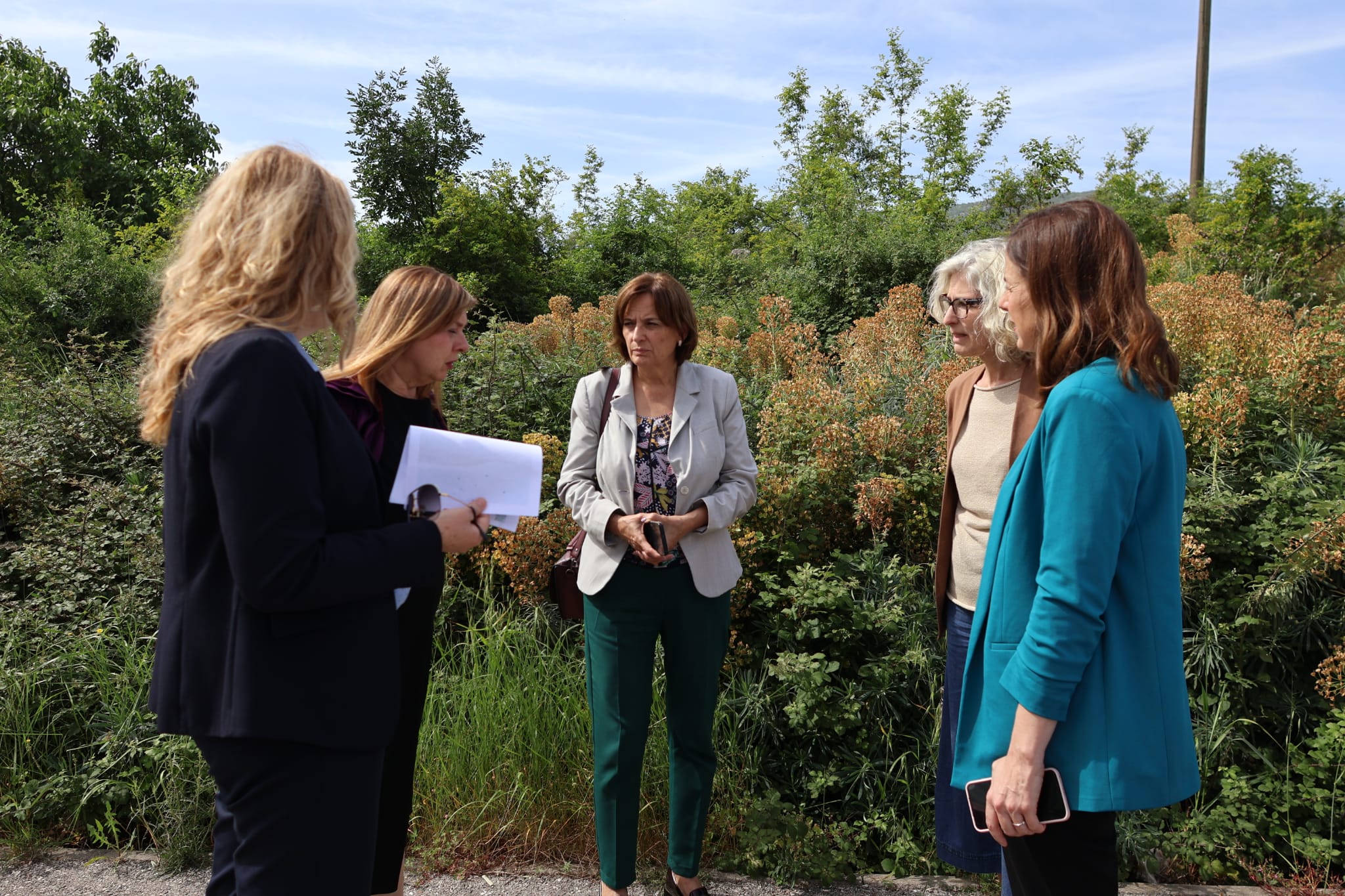Establishing a safe house in Trebinje, Bosnia and Herzegovina
Building a sustainable solution for protection and empowerment of women survivors of violence
Date:

As part of the initiative to establish a safe house in Trebinje, UN Women in Bosnia and Herzegovina and the City of Trebinje held a meeting in May, with the focus on developing sustainable solutions for the protection and empowerment of women survivors of violence in Trebinje and the surrounding areas, through the establishment of a safe house in this city.
Representatives from the Ministry of Family, Youth, and Sports of Republika Srpska, the Social Welfare Center, police officers, non-governmental organizations, OSCE, and other relevant stakeholders participated in the discussion. The meeting provided an opportunity to address the requirements, policies, and procedures for establishing a safe house in accordance with legal regulations and the Istanbul Convention.
The nearest safe house to Trebinje in Republika Srpska is located in Banja Luka, which is approximately a seven-hour drive away. Unfortunately, this distance renders it inaccessible to over 95% of women residing in Eastern Herzegovina. It’s crucial to emphasize that the Istanbul Convention, UN Security Council Resolution 1325 on Women, Peace, and Security, and other international agreements ratified by Bosnia and Herzegovina recognize the need for establishing safe houses for survivors of domestic violence based on their geographical origin. In its initial baseline report, GREVIO encourages the authorities in Bosnia and Herzegovina to increase the number and capacity of suitable, easily accessible, and specialized shelters that provide secure accommodation.
The Deputy Mayor of Trebinje, Dražen Bošković, presented recent developments on the initiative: “The City of Trebinje remains dedicated to supporting the initiative of building the safe house that will provide services not only to women from Trebinje but also to women residing in other parts of East Herzegovina. The city has allotted a plot of land and is actively collaborating with partners to ensure the necessary preparations for the safe house establishment. We have signed an agreement with Association ‘Ženski centar’ that defines joint actions and commitments of both sides.”
The initiative for the establishment of a safe house in Trebinje was initiated several years ago, and all counterparts are positive that it will come to life soon.
H.E. Dr. Ulrike Hartmann, Austrian Ambassador in Bosnia and Herzegovina, stated: "The fight against discrimination and the improvement of women's human rights situation is a longstanding and central concern of Austrian foreign, security, and development policy. Austria is pleased to support the initiative to establish a safe house in Trebinje. The Austrian Ministry of Foreign Affairs and Vienna Insurance Group have committed around 70,000 BAM for this initiative so far, and we remain available to advocate for its value.”
“We have witnessed the importance of safe houses across BiH, as they are one of the crucial stops for survivors who are experiencing and escaping the circle of violence. Safe houses serve as more than just a shelter for women and children, offering specialized services that offer support and resources to those battling domestic violence and any other form of violence”, said Jo-Anne Bishop, UN Women BiH Representative. “We will continue to advocate for a safe house and continue to support the City of Trebinje and all partners in advancing progress to address this urgent need”, she added.
The Association “Ženski centar” briefed about the status of the funds raised for the establishment of the safe house, stating that there is 175,850.04 BAM raised so far, while the needed amount is estimated to be close to 700,000 BAM.
For more information, please contact Masha Durkalić, Communications Associate at UN Women, masha.durkalic@unwomen.org.